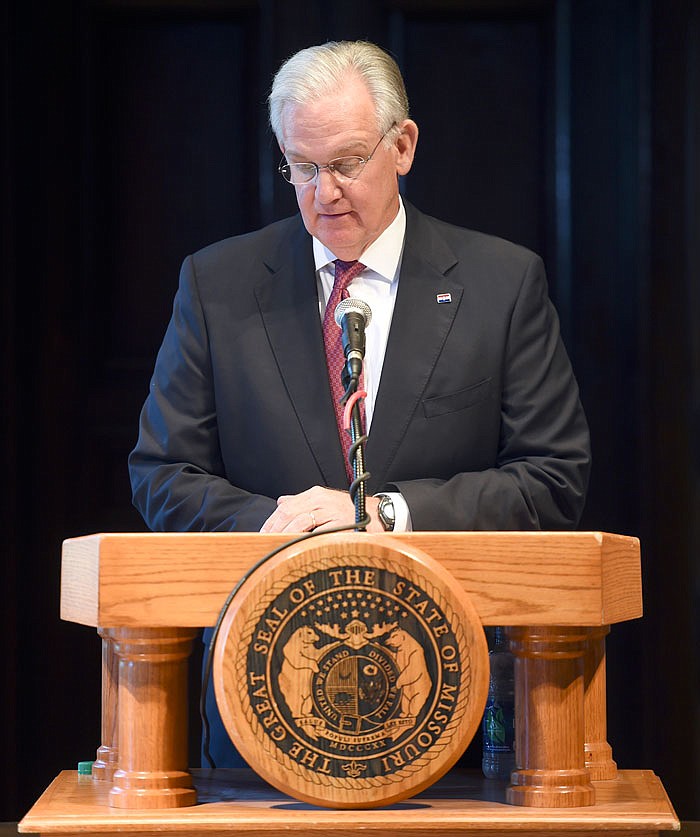When lawmakers return to Jefferson City next Wednesday for their annual veto session, Gov. Jay Nixon wants them to uphold all the vetoes he issued on bills passed in the 2016 General Assembly session, that could be considered for override votes next week.
"Before that session begins, I would ask (lawmakers) to do the research and please read the veto messages," Nixon said at the beginning of a nearly 40-minute news conference. "I've been at this a long time, and I take this extremely seriously.
"And, I think, looking at policy decisions is important."
The governor said he'd reviewed all of his veto messages this past weekend, calling them "well-crafted and well-researched."
He said the messages "present - in very specific terms - the legal and policy reasons why those bills were vetoed."
Nixon said veto decisions are based on the wording of each bill and on whether the bill helps "Missourians and move our state forward, or do they hurt Missourians and move our state back?"
Three of the vetoed bills would cost the state's budget "over $60 million annually wasn't accounted for in the budget and would have to be accounted for through additional spending restrictions and other programs, if they override these vetoes," he said.
Still, Nixon said, over the last 7 years of his governorship, "The vast majority of times we've worked together in a bipartisan fashion to move our state forward," including passage of the bonding bill to build a new Fulton State Hospital; an incentives package so the federal government would retain and expand the National Geospatial Center in St. Louis; revitalizing the auto industry in Missouri; and pension reform.
Nixon acknowledged some vetoes involve policy differences with lawmakers.
"I don't want some of those policy disagreements to remove public analysis and divert public discussion away from some things they don't want to talk about," he said.
In many cases, Nixon said lawmakers "are going to go for the generalized statements" rather than looking at the specific reasons for his vetoes.
Throughout his nearly eight years as governor, the Democrat has had to work with a Republican-controlled Legislature, which generally has had enough members in each chamber to get the two-thirds vote margin needed to override a veto on a straight party-line vote.
Some lawmakers have noted Nixon is "the most overridden governor" in state history.
"And the press has been quoting that, instead of going to each bill and talking about the substance," he said. "Don't let them (lawmakers) use as an excuse that they've got the numbers to (override) this stuff, if it's bad policy.
"They ought to, at least, have to answer to the public as to why."

